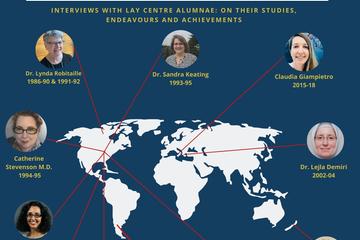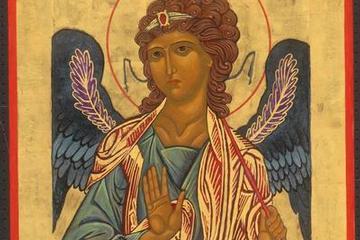
Catherine Stevenson, MD, psychiatrist and psychoanalyst, talks to us about experiencing "an unquestionable bolt of knowing" that she should move to Rome and how her studies in spirituality have been “invaluable” in working with patients.
What was your area of study and which pontifical university did you choose and why?
One night, in September 1994, I was working an overnight shift on the step-down side of the neonatal intensive care unit at Vanderbilt Hospital. I had received an early acceptance decision to medical school at East Tennessee State University, but the school year would not start until the next August. Before discovering my vocation to medicine, I had studied theology at KU Leuven, Belgium, about a decade earlier. I had completed a BA and an MA in religious studies, a bachelor of sacred theology and a master of moral and religious sciences, leaving me one year’s course work shy of a licentiate of sacred theology. Sitting on my stool in the blue-lit room, watching the babies sleep, I experienced an unquestionable bolt of knowing that I should move to Rome and finish my licentiate before med school.
What opportunities did your studies offer and how are your studies and research at the pontifical university related to the work you do today?
My parents had a great friend through their involvement in the Community of the Cross of Nails, an ecumenical organization devoted to reconciliation, and Father John McGuire, OP, happened to be the vice-rector of the Angelicum in Rome. When I got off work that morning, I set out to track him down. In the days before mobile phones and email, it took a bit of calling around to locate him on Martha’s Vineyard, where he was covering the island’s parish for a month. When I got John on the phone he passed me over to his guest, Father Robert Christian, OP, the dean of theology at the Pontifical University of St. Thomas Aquinas (Angelicum). In 10 minutes, we had my academic plan sorted out and, 10 days later, I was on a plane to Rome.
When I arrived in Rome I had the vice-rector’s flat to camp out in but no idea of where I might live. Someone gave me the number of The Lay Centre at Foyer Unitas and I walked to Piazza Navona to meet the director, Dr. Donna Orsuto. They were already full for the year, but converted a broom closet to make space for me.
My master’s work in Leuven had focused on mysticism, so spirituality was the natural area of focus for my studies at the Angelicum.
What opportunities did your studies offer and how are your studies or research at the pontifical university related to the work you do today?
Today, I am a psychiatrist and psychoanalyst and my studies in spirituality have been invaluable in working with patients. Much of the field of psychiatry is antithetical to faith and my practice is a welcome refuge for people who want to include their full selves in their inner work. I am also an established referral source for discerning whether a patient is psychotic or having mystical experiences.
What advice would you give lay women who would like to study in Rome?
Do not overthink it. Do not talk yourself out of it. Trust your inner voice and go.
How did your studies help you to become more able to serve the Church and society?
I have done some consulting for my local tribunal in cases with complex psychological presentations involving trauma. Currently, I am back at the Angelicum remotely, writing my doctorate of sacred theology thesis on the spirituality of the Order of Malta, of which I am a Dame in Obedience. The order has tended to focus on a self-understanding based upon history. I hope to contribute to expanding the understanding of its inner path.
What do you think is an area of most pressing concern in your area of study or of your profession?
I think the narcissistic pursuit of perfection is eroding the inner lives of so many people around us. It becomes an empty substitute for meaning in life and is a source of boundless unhappiness.
What, in your opinion, is the importance of the role of laity in the Church at a decisional level?
It seems like the Church makes its greatest missteps when it identifies Church as the Magisterium and clergy, and not as the people of God. If bishops had seen the Church they were protecting as the people of God, and not themselves and the clergy, they never would have reassigned predatory priests to parishes. A more vivid and vital presence of laity would fiercely help protect the Church.
Catherine Stevenson, MD, is a psychiatrist and psychoanalyst in Houston, Texas. She is in clinical practice and teaches and supervises at Baylor College of Medicine and the Center for Psychoanalytic Studies. While living at The Lay Centre in the 1990s, Catherine completed her licentiate in spirituality at the Angelicum. Her writing focuses on the relationship between spirituality and mental health, and she explores her longstanding interest in art and spirituality through writing both words and icons.
Photos courtesy Catherine Stevenson. We also asked our alumnae to share a special photo from their Lay Centre days. Catherine shared the one below capturing Palm Sunday 1995 on the steps of St. Peter's Basilica.
.jpg)

